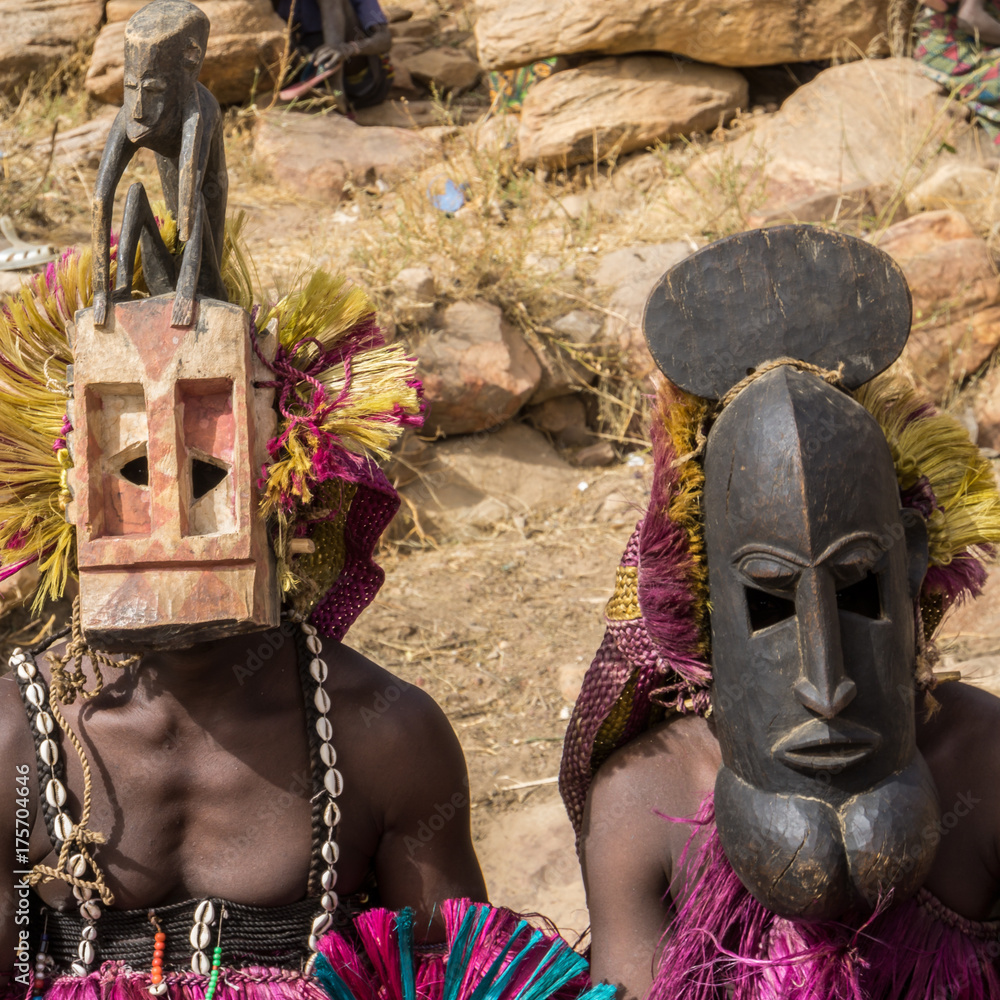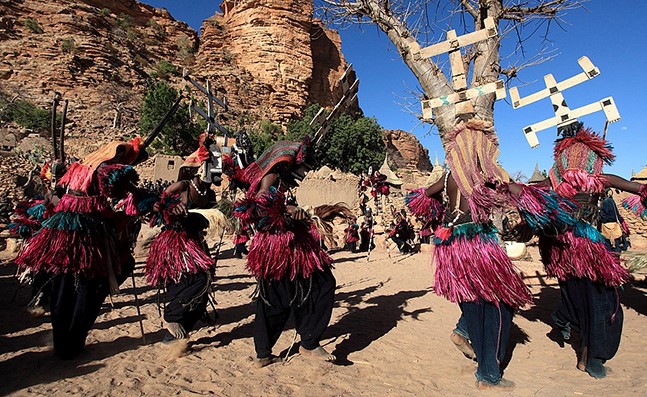The Dogon people of Mali are known for their rich cultural heritage, which includes vibrant mask festivals that celebrate their spiritual beliefs and traditions. These festivals, often held to mark important occasions or agricultural events, are a mesmerizing blend of music, dance, and elaborate masks. In this article, we delve into the mystical world of Dogon mask festivals, exploring their significance and the artistry behind the masks

Dogon mask festivals are deeply rooted in the Dogon people’s animist beliefs, which revolve around their connection to the spiritual world. The masks represent various spirits and ancestors, each with its own unique attributes and symbolism. When worn during festivals, these masks are believed to embody the spirits they represent, providing blessings, protection, and guidance to the community.
The creation of Dogon masks is a highly specialized art form, with master craftsmen meticulously carving, painting, and adorning the masks with intricate details. The masks are often made from wood, animal hides, and other natural materials. During festivals, masked dancers perform intricate routines, moving in synchrony with the rhythmic beats of drums and the melodic tones of flutes. The festivals serve as a communal gathering, strengthening the social fabric of Dogon communities and reaffirming their cultural identity. Dogon mask festivals are a fascinating glimpse into the spiritual world of this ancient culture and the artistry that sustains it.


